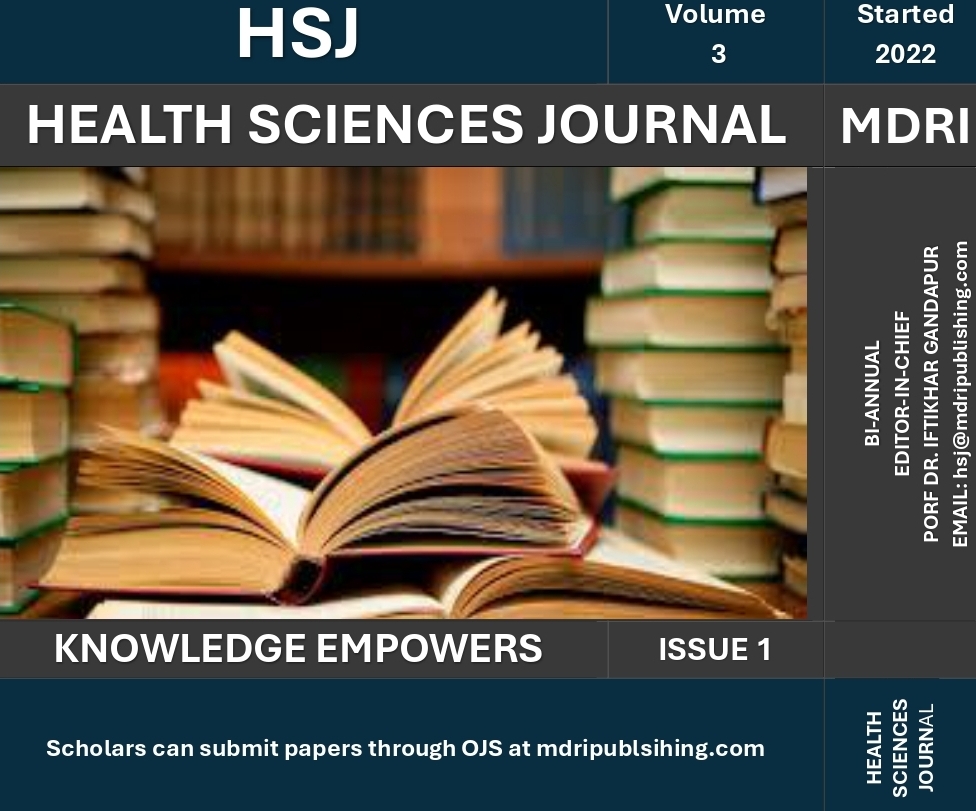ISOLATION, CHARACTERIZATION AND ANTIBIOTIC SUSCEPTIBILITY OF KLEBSIELLA SPECIES IN URINE SAMPLES OF UTI PATIENTS VISITING DHQ HOSPITAL D.I. KHAN
DOI:
https://doi.org/10.59365/hsj.3(1).2024.113Keywords:
API 10E, CLED Agar, Disc Diffusion method, Klebsiella isolates, Urine samplesAbstract
Background A gram-negative rod-shaped pathogenic bacterium-Klebsiella, repeatedly causing Urinary Tract Infection. Objectives: Isolation, Characterization and antibiotic susceptibility of Klebsiella species in urine samples of UTI patients. Methodology: For this
purpose, a total of 105 samples were randomly collected from the patients with urinary tract complications visiting District Head Quarter Hospital D.I. Khan, Pakistan. Results: Urine samples with pus cells were inoculated on Cystine-lactose-electrolyte-deficient
(CLED) agar and it was revealed that only 12 out of 105 samples were Klebsiella positive on the basis of cultural characteristics.
Further confirmation was done using biochemical characterization through Analytical Profile Index (API 10) and out of 12 all the isolates were Klebsiella pneumoniae. Disc diffusion method was used to test the antibacterial susceptibility on Muller Hinton Agar.
Klebsiella isolates showed 100% resistance to Cefepime, Cotrimoxazole and Ceftriaxone, 91% to Ampicillin, Doxycycline
and Cefazoline and 83% to Piperacillin/Tazobactam, Imipenem, Ciprofloxacin and Gentamycin. Only two antibiotics Fosfomycin
and Nitrofurantoin were two antibioticsKlebsiella isolates showing sensitivity. Conclusion: It is assumed that excessive use of
antibiotics without proper diagnosis is among one of the main reasons responsible for antibiotic resistance.





